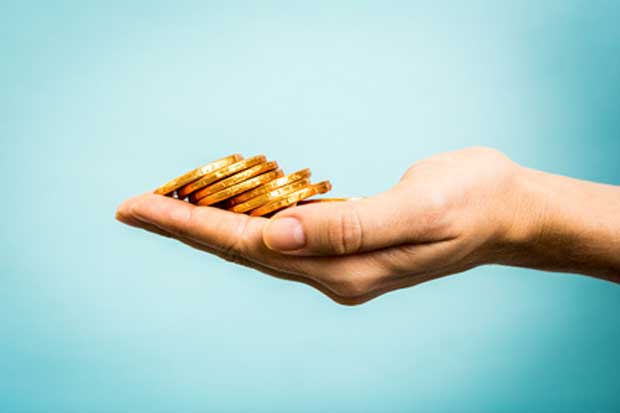As June becomes July, and winter proper sets in, millions of Australia’s higher income earners will find great warmth in the prospect of their substantial tax returns waiting to be filed. They have spent the past months absorbing the tax avoidance advice which has bombarded them from all directions, and now they’re champing at the bit to reap the returns to which they are so richly due.
The end of financial year is the annual zenith of Australia’s ongoing middle and upper-class age of entitlement.
The season’s greeting could come in the form of PR posing as journalism from a business like OfficeWorks (AKA ‘Your Happy Tax Place’), encouraging across the board expensing.
It could come from that one colleague, summoned from the woodwork by the smell of fresh group certificates, who unsolicitedly advises on how best to claim expenses on your car, or at which point you should limit your tax deduction claims to avoid unwanted scrutiny, (“it will cost the government X amount to look into your case so if your refund is smaller than that then it won’t be worth it for them anyway”).
But no matter how it comes, the message is clear; do whatever you can to keep as much money in your (or your accountant’s) own pocket, and out of the government’s grasping paws.
The national mania for personal tax avoidance is bipartisan. It is an attitude most famously vocalised by Kerry Packer, when, in response to the accusation of tax minimisation ‘contrary to the spirit of the law’, he told the Federal Government’s inquiry into the print media; “Of course I am minimising my tax, and if anybody in this country doesn’t minimise their tax they want their heads read, because, as a government, I can tell you, you’re not spending it that well that we should be donating extra”.
A sentiment endemic to the Australian middle and upper classes, fostered and peer-legitimated from one’s first tax return, it speaks to a deeply ingrained cognitive dissonance; ‘entitlement is bad, but we work hard and earned our money, so we are entitled to keep our own income from the government by all possible means, and, furthermore, we are savvy in our financial affairs, so we can claim whatever government subsidies are available, regardless of the underlying morality, while still being ‘lifters’ rather than ‘leaners’’.

While most visceral during the end of financial year season, this sense of entitlement spans the year through, and extends far beyond filing questionable personal income tax returns.
It goes to the knee-jerk move made by any individual newly wealthy enough to need an accountant; the creation of a ‘family trust’, which allows the avoidance of a certain amount of tax through the distribution of personal income to family members, basically the dole for the families of the rich subsidized by the Australian treasury.
It extends also to those gold standard institutionalised subsidies to the wealthy that form unshakeable pillars of our society; negative gearing and the capital gains tax exemptions to property, which encourage speculation, inflate the Australian property bubble, reduce home ownership, and redistribute wealth into the pockets of the already wealthy at a cost of about $4 billion per year to the Australian public purse, the most prolific subsidy of the affluent by the taxpayer in Australia, with over 1.2 million people taking advantage of it annually.
The phenomenon of Australia’s middle and upper classes sneering down their noses at the disabled, the elderly, and the unemployed, for daring to claim meagre subsistence benefits, while guzzling at the trough of public funds for every possible tax, superannuation, and state supplied financial benefit within snout-reach, is now well established. The practice is undergirded by financial and taxation systems with huge gulfs between what is legal, and what is ethical.
Our good treasurer is the example par excellence of this system in action. While publicly demanding an ‘end to the age of entitlement’, Mr Hockey, who is paid $366,000 dollars a year by the Australian public and owns a property portfolio valued at around $10 million dollars, continued his long standing practice of claiming $270 a night from the taxpayer to stay in his own family home whenever he is in Canberra, a house that has increased in value from $377,000 in 1997 to around $2 million now. Totally legal, and completely unethical.
In Australia, wealth inequality has been gaining steam for decades. We now approach the levels found in the United States and the United Kingdom. The fair go for everyone that was the greatest source of pride in the Australian national identity has disappeared before our eyes.
Australia has gone from The Lucky Country of Donald Horne, where “most people earn within a few pounds of the average”, to a nation that ranks within the top 3 to 4 most unequal countries in the developed world, by metrics of disparity between top 10 per cent and bottom 10 per cent income.
The chronic rise in wealth inequality, the rampant sense of entitlement of Australia’s middle and upper classes, and the inequitable and morally spurious financial regulation and tax legislation in this country act to constantly and mutually reinforce each other.
There is no date in the calendar which better highlights this nexus of privilege, scorn, and entitlement than the 1st of July. Happy New Financial Year.
Donate To New Matilda
New Matilda is a small, independent media outlet. We survive through reader contributions, and never losing a lawsuit. If you got something from this article, giving something back helps us to continue speaking truth to power. Every little bit counts.




